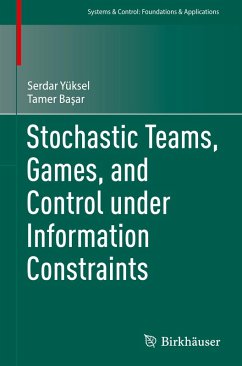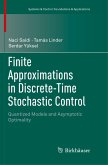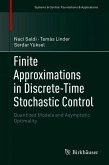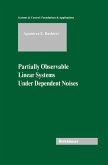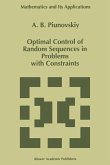This monograph presents a mathematically rigorous and accessible treatment of the interaction between information, decision, control, and probability in single-agent and multi-agent systems. The book provides a comprehensive and unified theory of information structures for stochastic control, stochastic teams, stochastic games, and networked control systems.
Part I of the text is concerned with a general mathematical theory of information structures for stochastic teams, leading to systematic characterizations and classifications, geometric and topological properties, implications on existence, approximations and relaxations, their comparison, and regularity of optimal solutions in information. Information structures in stochastic games are then considered in Part II, and the dependence of equilibrium solutions and behavior on information is demonstrated. Part III studies information design through information theory in networked control systems - both linear and nonlinear - and discusses optimality and stability criteria. Finally, Part IV introduces information and signaling games under several solution concepts, with applications to prior mismatch, cost mismatch and privacy, reputation games and jamming.
This text will be a valuable resource for researchers and graduate students interested in control theory, information theory, statistics, game theory, and applied mathematics. Readers should be familiar with the basics of linear systems theory, stochastic processes, and Markov chains.
Hinweis: Dieser Artikel kann nur an eine deutsche Lieferadresse ausgeliefert werden.
Part I of the text is concerned with a general mathematical theory of information structures for stochastic teams, leading to systematic characterizations and classifications, geometric and topological properties, implications on existence, approximations and relaxations, their comparison, and regularity of optimal solutions in information. Information structures in stochastic games are then considered in Part II, and the dependence of equilibrium solutions and behavior on information is demonstrated. Part III studies information design through information theory in networked control systems - both linear and nonlinear - and discusses optimality and stability criteria. Finally, Part IV introduces information and signaling games under several solution concepts, with applications to prior mismatch, cost mismatch and privacy, reputation games and jamming.
This text will be a valuable resource for researchers and graduate students interested in control theory, information theory, statistics, game theory, and applied mathematics. Readers should be familiar with the basics of linear systems theory, stochastic processes, and Markov chains.
Hinweis: Dieser Artikel kann nur an eine deutsche Lieferadresse ausgeliefert werden.

